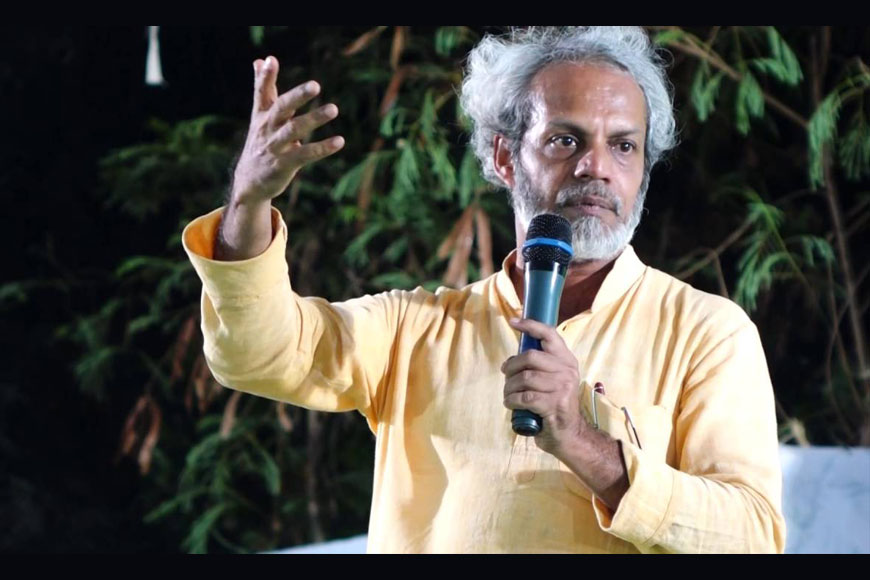Lone rice crusader Debal Deb is reviving lost varieties of Bengal paddy

The plains of lush green and fertile Bengal have always boasted of the best varieties of paddy since time immemorial. Not just one of the leading states in paddy production, Bengal has also given to the world some of the unique varieties of rice with specific nutrients in an age when gene manipulation in crops was unknown. Yet, Green Revolution over the years took away most of these indigenous rice varieties of Bengal and we lost thousands of native rice varieties, their numbers dwindling from a whooping 1.10 lakh to less than 7,000 rice varieties. The traditional crops gave way to the hybrid, high-yielding varieties.
But there was always a need to bring these crops back and the one man who relentlessly worked for almost 25 years to revive these lost paddy varieties is scientist Debal Deb. A doctorate in Aquatic Ecology from Calcutta University, he completed post doctorate from Indian Institute of Science, Bangalore and University of California. Deb’s only mission was to bring back every rice variety that once played on the paddy fields in different districts of Bengal.
Deb was so passionate about this mission, that he left his job and started community farming. He engaged in intense field work for documentation of rice varieties still left, toured remote areas of Bengal and realized most farmers cannot afford chemical fertilizers and pumps for irrigation. Hence, they still cultivate indigenous varieties that require less water and can survive without fertilizers. Though there was an official documentation of 5,500 indigenous varieties from Bengal still existing, Deb could lay his hands on only 350 varieties of rice. Every village that he could reach, he requested for a handful of grains from the farmers and urged them to continue with the cultivation of the indigenous variety.
On his mission, Deb has collected 1,420 native rice varieties from twelve states of India and even from countries like Bangladesh, Pakistan, Korea, Philippines and Italy. He has now made a seed bank named Vrihi which primarily aims to bring the lost varieties of paddy back to the agricultural sector on a large scale. Deb grows these seeds and distributes them among farmers with a promise that they will cultivate this rice and bring back more seeds next year. That’s how the cycle goes on. The indigenous varieties were well suited for all climates. Like, Deb has two varieties of drought tolerant seeds and six varieties of salt tolerant rice which have been reintroduced in Sundarbans.
Surprisingly, these were the only varieties of rice that managed to survive when Cyclone Aila struck Sundarbans and the receding flood waters made the cultivable lands saline. Deb also has varieties of rice which have medicinal value, those with high levels of antioxidants to keep diseases like cancer at bay. Every year, hundreds of farmers pay him a visit to exchange and borrow rare seeds. Since 1997, Deb and his farmer communities have sown 700 varieties of such seeds to prevent such varieties from disappearing. Deb also offers training to farmers on how to maintain the genetic line of these rare varieties.
Despite being a lone crusader in the revival journey, Deb is often talked about by Anupam Pal, another passionate seed conserver and Assistant Director, Government Training Centre of Phulia. He spoke of Deb’s book Loot hoe jae shodesh bhoomi that changed the very perception about agricultural practices and how Green Revolution was nothing beyond the business of multinational corporations using farmers as potential customers. ‘I started visiting Debal Deb and developed a better understanding of the concept of organic farming. I began my journey with five varieties of indigenous rice. Today, there are more than 400 varieties collected from various parts of the country. I had taken almost 22 varieties from Debal Deb. He related the concepts of society, socio economic conditions, environment, people, food habit, production ecology which transformed my views about agriculture entirely,’ said Pal. ‘He is the inspiration behind my journey and I am still learning from him,’ he added. Deb surely will be an inspiration to many in the days to come.









